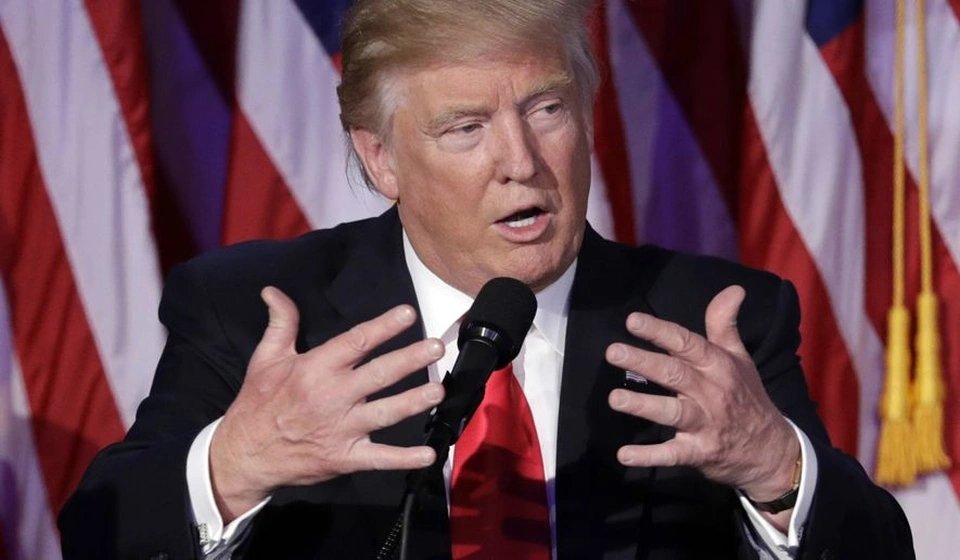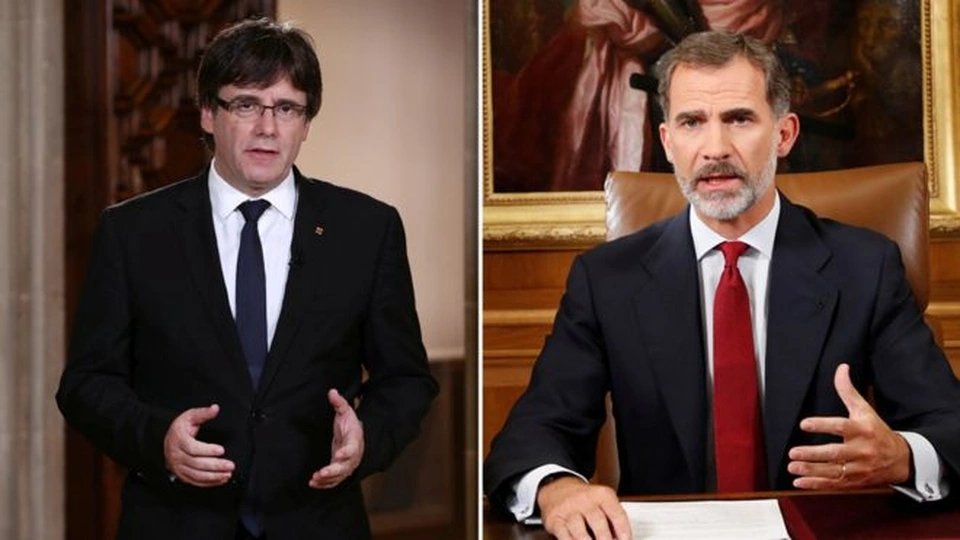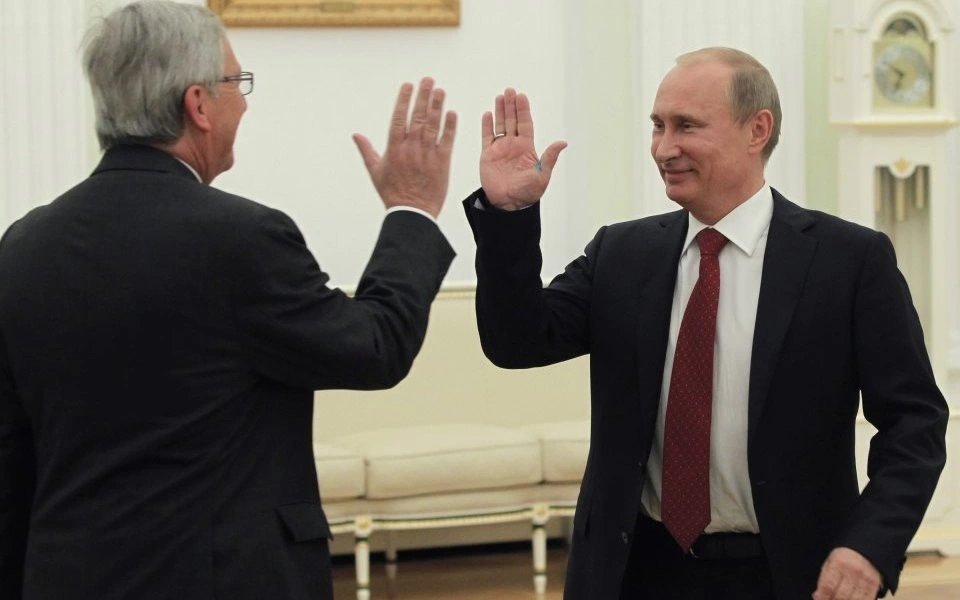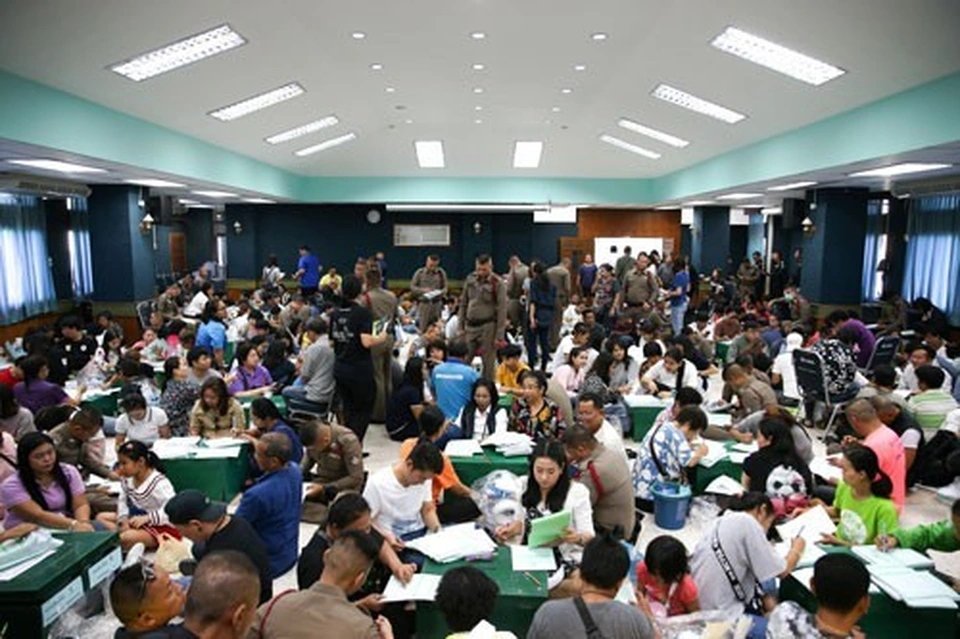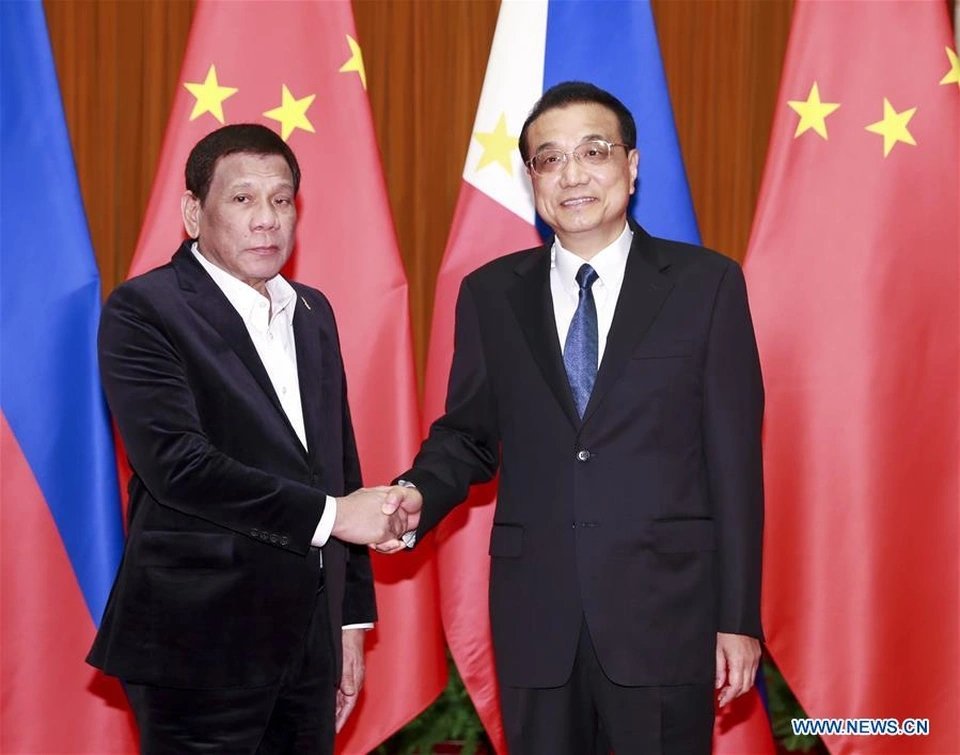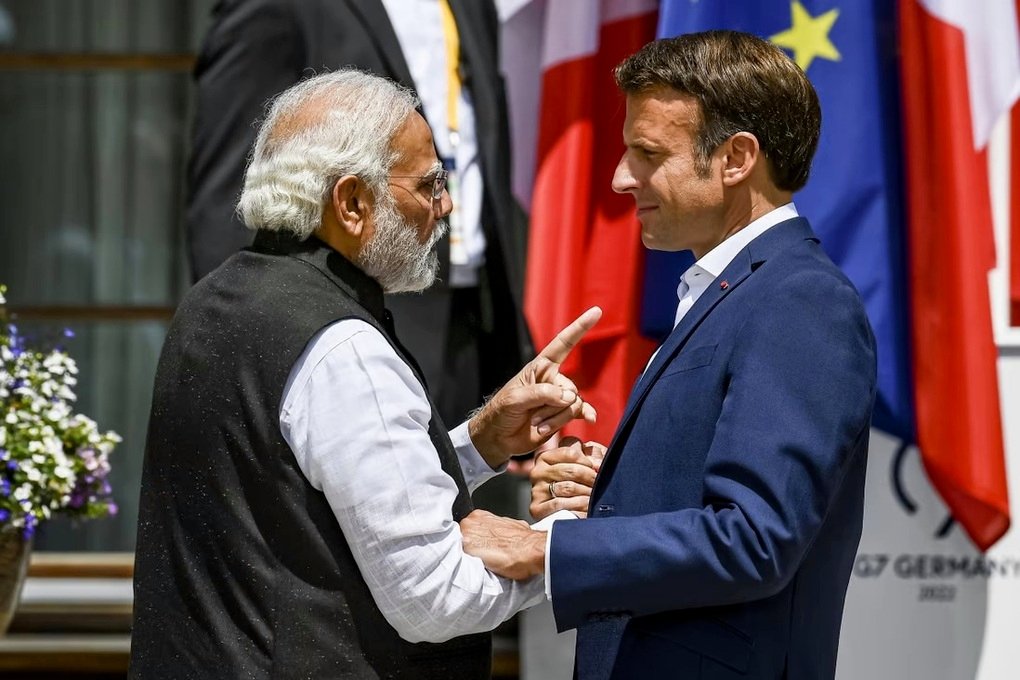
(Dan Tri) – The EU and India are resuming trade negotiations to strengthen economic relations and move towards establishing a comprehensive trade agreement by 2023.
Indian Prime Minister Narendra Modi and French President Emmanuel Macron at the G7 Summit in Germany (Photo: EPA-EFE).
Despite the difficulties caused by the Covid-19 pandemic and the energy and food crises caused by the war between Russia and Ukraine, India is emerging as a fast-growing economy.
With impressive results in recent years in politics, security, defense and economic growth, India is currently the third largest economy in Asia and a non-permanent member of the United Nations Security Council.
The Indian Ministry of Industry and Trade said that the EU is currently India’s second largest trading partner after the US and India is the EU’s 9th largest trading partner, accounting for 2.4% of the EU’s total trade turnover.
Garima Mohan – senior fellow at the Asia Program of the Marshall Fund, Germany, said that the relationship between the EU and India has now `grown`.
EU Trade Commissioner Valdis Dombrovskis affirmed that for the EU, the partnership with India is one of the `most important relationships in the next decade`.
The Indian Ministry of Foreign Affairs also assessed that India and the EU have a strategic partnership, and the two sides have been witnessing the development of strong, vibrant and increasingly extensive cooperation in key fields.
At the G7 Summit in Germany (June 26-27), Indian Prime Minister Narendra Modi met European Commission President Ursula von der Leyen to discuss ways to improve trade relations.
A notable highlight in the EU’s efforts to upgrade relations with India is that on June 27, in the capital New Delhi, the EU and India resumed negotiations on Trade and Capital Investment Agreements.
The first round of the above negotiations ended on July 2.
The Indian Ministry of Commerce said that the two sides are aiming for wide-ranging, balanced and comprehensive negotiations based on the principles of fairness and reciprocity to resolve problems and obstacles hindering relations.
Cooperation in many fields
The Financial Times newspaper quoted an EU official as saying that the EU wants to deepen its relationship with India to counterbalance China’s rising economic power.
In addition, the EU is trying to promote measures to help India ease its dependence on key Russian exports.
Vivek Mishra, a member of the Observer Research Foundation in New Delhi, said that India is taking an increasingly strategic position in its relationship with Europe, especially in the context of growing relations between the EU and China.
In addition, European businesses are also making efforts to diversify their supply chains, especially after the supply chain was severely affected by the Covid-19 pandemic and China’s `Zero-Covid` strategy.
Mr. Roland Busch, Chairman of the Association of German Businesses in Asia-Pacific, highly appreciated the EU and India resuming trade negotiations;
Ms. Garima Mohan said, German industry knows that they need to diversify their markets, find alternative markets so they do not have to depend only on the Chinese market as before, and India’s potential is being considered.
The trade agreement with the EU will help India further expand and diversify its exports of goods and services, including by securing value chains.
India is increasingly receiving great attention not only from the US but also from the EU because New Delhi plays an increasingly important role in the international arena.

